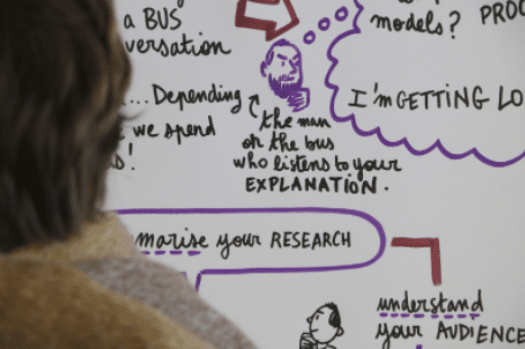Introduction to the science of climate change communication
There is a wealth of scientific evidence for climate change – enough to fill five IPCC reports – but there is much less focus on how to communicate climate change research to the public.
Researchers are therefore often unsure or unconfident about how best to communicate with non-academics.
With the new UNFCCC target of keeping global temperatures to less than 2°C above pre-industrial averages, and the consequences of high-end climate change becoming better understood, climate experts should be engaging their publics.
But how? These webpages for researchers across the physical, natural and social sciences takes up this challenge.
You will gain knowledge of the science of climate change communication, and the confidence to apply this knowledge in practice with non-academic audiences.

Illustration by Barbara Govin created during the workshop held in Paris in September 2017
This resource has the following aims:
- To provide an introduction to the social and political context of communicating climate change, as well as specific tips and guidance for researchers (introducing the science of communicating climate change)
- To increase the confidence and capacity of climate change researchers to effectively engage the public (building climate change communication confidence)
The content of these webpages draws on a series of workshops created and developed by Climate Outreach and the Tyndall Centre for Climate Change Research as part of the Helix project.
Illustration by Barbara Govin created during the workshop held in Paris in September 2017
